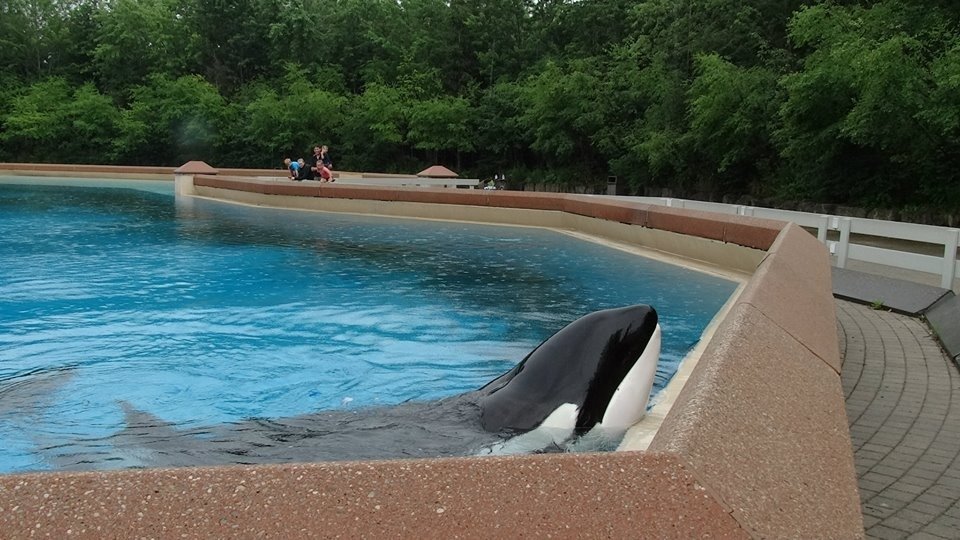“Left to die one by one”: Canada’s controversial Marineland zoo announces five beluga whales have died this year
The zoo and aquarium has faced years of animal abuse allegations, and now welfare groups are calling on the government to step in to prevent further deaths.
File photo of a beluga whale in an aquarium.
A controversial zoo and aquarium in Canada has announced the latest death of a beluga whale - bringing the total number of beluga whale deaths at the facility to five this year alone.
Marineland, which is Canada’s last remaining aquarium to keep whales in captivity, has now had a total of 17 beluga whales die under its care since 2019.
The staggering number of marine animal deaths at the facility has led to mounting pressure on the government to step in and help save the remaining animals.
Canadian non-profit Animal Justice are among those calling for the authorities and the government to take “decisive action” to prevent more deaths.
“It is deeply saddening that the many beluga whales still believed to be trapped at Marineland are being left to die one by one”, said lawyer and Animal Justice executive director Camille Labchuk. “These highly intelligent, social animals are suffering, and it’s long past time for Ontario’s Animal Welfare Services to step in and put an end to this tragic cycle of neglect and death”.
Politicians in the province have also expressed outrage at the park’s operations, reports the Guardian, with the New Democrat leader Marit Stiles calling the death’s “disgraceful” and pledging to close down Marineland if elected, while Liberal leader Bonnie Crombie expressed that there was “no accountability” for the marine animals.
According to the official response from Marineland, the deaths were a natural outcome. The Ontario government’s chief animal welfare inspector also issued a statement to say that the death’s were likely not related to the park’s water quality, which is tested weekly and is currently “acceptable”.
However, the park has been accused of various animal welfare abuses over the years.
Marineland’s controversial history
Most recently, Marineland was found guilty earlier this year of three charges over its inadequate care for three young black bears. The animal’s living conditions were so poor that the province’s Animal Welfare Services declared the bears were living in distress.
Marineland then failed to improve the bear’s living conditions as part of the charges, and officials had to seize the animals and send them to sanctuaries.
While the zoo and aquarium denied the charges, the court declared them guilty.
“The court decision reinforces why Marineland should not be able to own any wildlife”, Michèle Hamers, Wildlife Campaign Manager at World Animal Protection said at the time of the ruling. “The organization was ordered to make changes, and they neglected to do so. How many more examples are needed before Marineland is shut down once and for all?”.
Marineland had also previously been at the centre of a tragic and decades-long animal welfare battle over its mistreatment of Kiska, who was dubbed the “world’s loneliest orca”.
Kiska was originally taken from the wild back in 1979, before being sold to Marineland. Animal welfare groups labelled Kiska’s life at the park as “dismal” and said the marine animal endured tragedy after tragedy.
Kiska at Marineland before her death. Credit: PETA
Over her decades in captivity, Kiska gave birth to five calves, who all died before they reached the age of seven. The death of her tankmate Ikaika in 2011 then left her completely alone in solitary confinement for over ten years.
In 2021, footage was released that appeared to show Kiska repeatedly slamming her head against the side of her tank. Later, in March 2023, the marine animal died at the park after over four decades of captivity.
A hopeful future for marine animals in Canada
Kiska’s tragic death also gave hope for positive change: she was Canada's last remaining orca in captivity.
Similarly, Marineland is the last aquarium in the country that houses whales, and this mounting pressure against the facility shows that public attitudes towards animal captivity are changing.
In a sign of progress, Canada passed a so-called “Free Willy” bill back in 2019, which outlawed the trade, possession, capture, and breeding of whales, dolphins, and porpoises. The bill effectively ended the unnatural practise of using cetaceans for entertainment or keeping them in captivity, but the laws did not apply to those already in captivity - including those at Marineland.
But with Marineland facing increasing calls to shut down, a new era for animal welfare in Canada could be ushered in soon.
“With Marineland reportedly up for sale and no clear plan for the care of the animals still stuck there, authorities and the government need to take decisive action and end the neglect before more lives are lost,” says Animal Justice’s Ms. Labchuk.
We Have A Favor To Ask…
Species Unite amplifies well-researched solutions to some of the most abusive animal industries operating today.
At this crucial moment, with worldwide momentum for change building, it’s vital we share these animal-free solutions with the world - and we need your help.
We’re a nonprofit, and so to keep sharing these solutions, we’re relying on you - with your support, we can continue our essential work in growing a powerful community of animal advocates this year.






